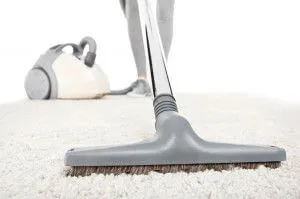To vacuum or not to vacuum? If you have severe allergies or are concerned about the air you’re breathing in your house, then you should ask yourself this question. While vacuums do pick up a lot dust, some also release fine dust and bacteria back into the air.
You may think that you’re cleaning, but with some vacuums, all you’re really doing is spreading germs.
Researchers tested several models of vacuums from different manufacturers with varying price ranges and various ages. Their findings showed that all of the vacuums picked up the larger objects and larger pieces of dust, but they also released fine particles and allergens into the air. The research did show that the models of vacuums that were more expensive and newer released less dust than the less expensive and older models.
It is recommended to use a vacuum with a bag as opposed to a bagless version. Having a bag will eliminate any hazard from the dust particles that you would be exposed to with a bagless. Also, using a HEPA air filter (high efficiency particulate air) in your vacuum will help remove the allergens and bacteria from the air, but it is important to replace your filter often.
Be sure to get a vacuum with a sealed system. With a sealed system, the dirty air will need to flow through all the filters before being extracted into the surrounding air. When you vacuum, the dirt will go into the bag, whatever leaks or sneak out from the bag will go into your HEPA filter, and from there it will be released into the air.

It is important to clean and remove the dirt from your house, so don’t think this is an article on ways to get out of cleaning. Vacuuming will reduce the allergens and dust particles in your home, but it’s best to get a new vacuum with a bag and HEPA filter.
It may cost you more, but it will improve your indoor air quality – and keep you from breathing dust mites.
-The Alternative Daily
Sources:
http://www.webmd.com/allergies/news/20120106/are-vacuum-cleaners-bad-for-health
